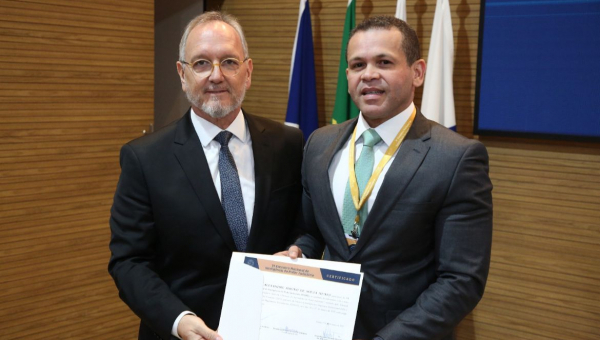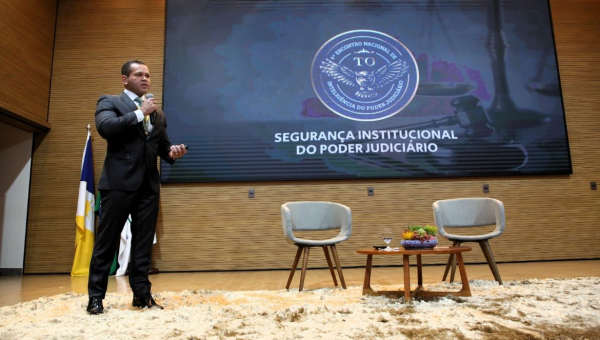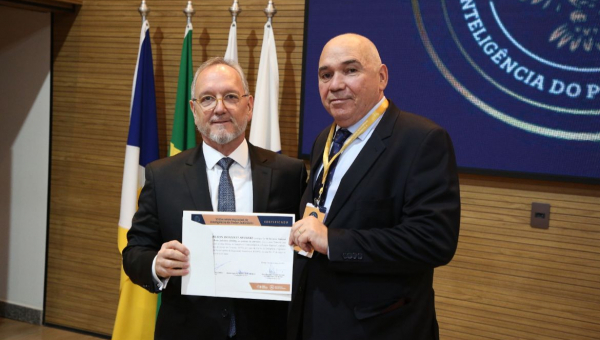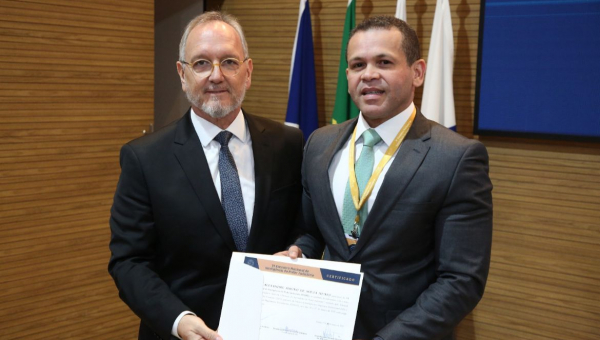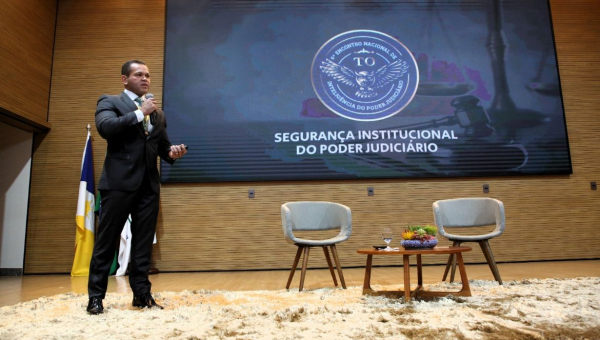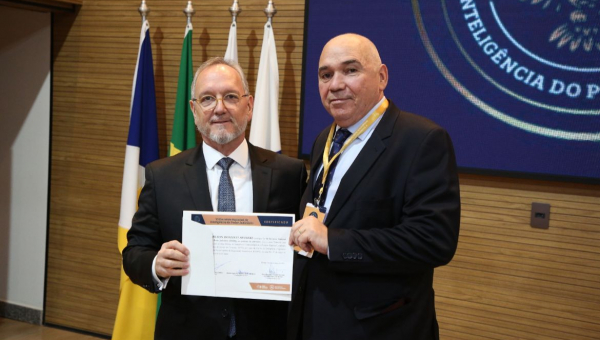
The afternoon programming of the first day (March 26th) of the VI National Meeting on Intelligence in the Judiciary brought reflections on the importance of integrating cutting edge technology, continuous training and cooperation between the various spheres of the Judiciary to guarantee the security and effectiveness of operations. The discussions began with the lecture on “Cutting edge solutions for the tactical, intelligence, counterintelligence and special projects areas”, presented by Donizeti Heineke, CEO of Berkana Tecnology in Security Ltda.
The concepts of corporate intelligence, the principles of the activities of the intelligence professional, as well as the necessary requirements for implementing the Corporate Intelligence Policy were some of the topics raised in the discussion.
According to the speaker, intelligence should be focused on producing and disseminating knowledge to support institutional leadership in making strategic decisions, while corporate counterintelligence acts to prevent, detect and neutralize threats that could compromise intelligence activities.
In highlighting the requirements needed to implement the Corporate Intelligence Policy, the speaker emphasized the need for training and qualification of specialized professionals in the area. “Uncontrolled and uncoordinated information is detrimental to both intelligence and counterintelligence. It is therefore necessary to constantly improve knowledge, keeping up with technological developments,” he said.
Among the requirements for implementation are secure and efficient information and communication systems, as well as the use of cutting edge technology for obtaining, analyzing and processing information. Both activities are part of the technological innovations aimed at improving security, presented to participants as intelligence solutions by the government security solutions provider, Berkana.
The second lecture, given by Alexandre Magno de Souza Nunes, a colonel in the Military Police of the state of Maranhão and advisor of Security and Intelligence of the TRE-MA, dealt with intelligence activities applied to the protection of judicial authorities, two complementary areas.
According to data from the Diagnosis of the Security of the Judiciary, carried out by the CNJ in 2021 and presented by the speaker, there has been a reduction in the number of magistrates at risk in the State, Labor, Superior, Federal and Electoral Courts, as a result of the measures imposed by the Institutional Security Regulations of the CNJ, implemented by the courts.
Part of the institutional security intelligence system is the exercise of specialized actions to identify, evaluate and monitor real or potential threats to the assets of the Judiciary. Alexandre Nunes says that all security measures must be based on an analysis of the context and an evaluation, not only by means of methodologies, but also by professionals with experience in security.
For the speaker, it is essential that the central body provides joint training for agents, ensuring the standardization of actions and promoting the integration of the institutions that make up the security of the Judiciary.
The institutional relations between the federal, municipal and state bodies of the Judiciary were emphasized by Alexandre. “We can't do intelligence without communication and bringing the institutions closer together. We shouldn't do half security, it requires planning, preparation, dissemination, training and effective execution,” he stressed.




